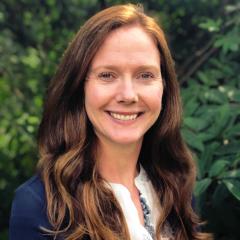

I was informed of my Fulbright Distinguished Awards in Teaching Research grant on 27 July, 2020 while the world was in the early stages of the Covid-19 Pandemic. Back then, it seemed we might get “back to normal” in a few short months, little did we know that our realities would be changed forever. In the excitement of the grant award, Zoom meetings, email conversations, and remote orientations were disappointing but inevitable. I was going to study and live in Finland!
I will sit through as many Zoom meetings as you ask. Over the following months, I met with fellow grantees, representatives from Fulbright Finland Foundation, and U.S. coordinators dozens of times. I got to know their voices and faces, from the waist up of course. At the time, I still held out hope for in-person interactions once I was in Finland. But shortly before my arrival, the Omicron variant caused renewed restrictions to be implemented. What should have been our first in-person meeting, was relegated once again to Zoom and outdoor meet-ups.
Despite constant changes and unknowns, our tireless leaders at the Fulbright Finland Foundation continued to plan for us to meet and collaborate face-to-face. Finally, as the sun returned to Finland and the snow melted away, we were able to gather in Helsinki for the first truly in-person meeting of the 2021-22 grantees.
It is hard to say how the pandemic will affect us in years to come, but it is clear that the lack of human interaction has made us appreciate the moments when we can have a conversation without a microphone. Sharing meals with my fellow grantees and the Fulbright Finland Foundation staff, laughing, and making small talk was a joy.
Workshop on diversity, equity, and inclusion
A prime example of the difference in remote versus face-to-face interaction came on day two of our gathering. During our days in Helsinki, we met for a workshop on Diversity, Equity, and Inclusion (DEI) in the context of Finnish Higher Education. We were grouped with fellow grantees and representatives from higher education institutes to consider more inclusive approaches to welcoming international students. These conversations included privilege, tokenization, and developing awareness around these topics. While not impossible to have over Zoom, being able to speak freely in a face-to-face environment allowed for a much more comfortable, open conversation.
Zoom does not lend itself to a natural conversation flow as it requires unmuting and sort of “asking for the mic”. Many people, myself included, are much more hesitant to share in this environment. In the end, I was able to leave the workshop with a feeling that I heard and was heard by my colleagues.
Learning Finnish sports
While not nearly as serious, my personal highlight of the week came on our final afternoon. We were invited by a Fulbright Finland Foundation employee and sähly (Finnish floorball) master for a friendly game. When we arrived at the arena, we were handed sticks and given a short lesson on sähly.
The game is similar to ice hockey with a few exceptions. We were then divided into teams and let loose on the floor. I think this was my first time playing a team sport since the pandemic began and it did not disappoint. The banter and camaraderie were a welcome light in a very dark time and if the smiles on my fellow grantees’ faces said anything, I do not think I was alone in this feeling.
Also, it did not hurt that my team won.


